Combating risk behavior among youngsters
Hello everyone!
In Finland the days started early. The first step after waking up was always going upstairs and enjoying our hostel’s traditional Finnish sauna. There we’ve met tourists from several parts of the world, but mostly Asian people, most of them from Korea. That’s quite specific for Finnland that it has a lot of Asians: Japanese, Vietnamese and Korean inhabitants. However, the population seems unified and except few cases, in Helsinki the word 'integration' is not just an utopia. After our energy resources were full, the day could start.
After sauna and the copious daily breakfasts we all left to our host-university called Metropolia University of Applied Sciences. On the very first day, the Finnish teachers provided us a beginner Finnish lesson. I can honestly say, that although Hungarian and Finnish derive from the same family of languages, we’ve found almost no similarities between them. Or between Finnish and any other language known by us. The teachers and host students taught us in a very funny way, and it’s a good sign that I still remember some basic words like: apua (help) or kiitos (thank you), even if 3 years passed since than. After some warm-up excercises and games to get to know each other better, classes, presentations and workshops started.
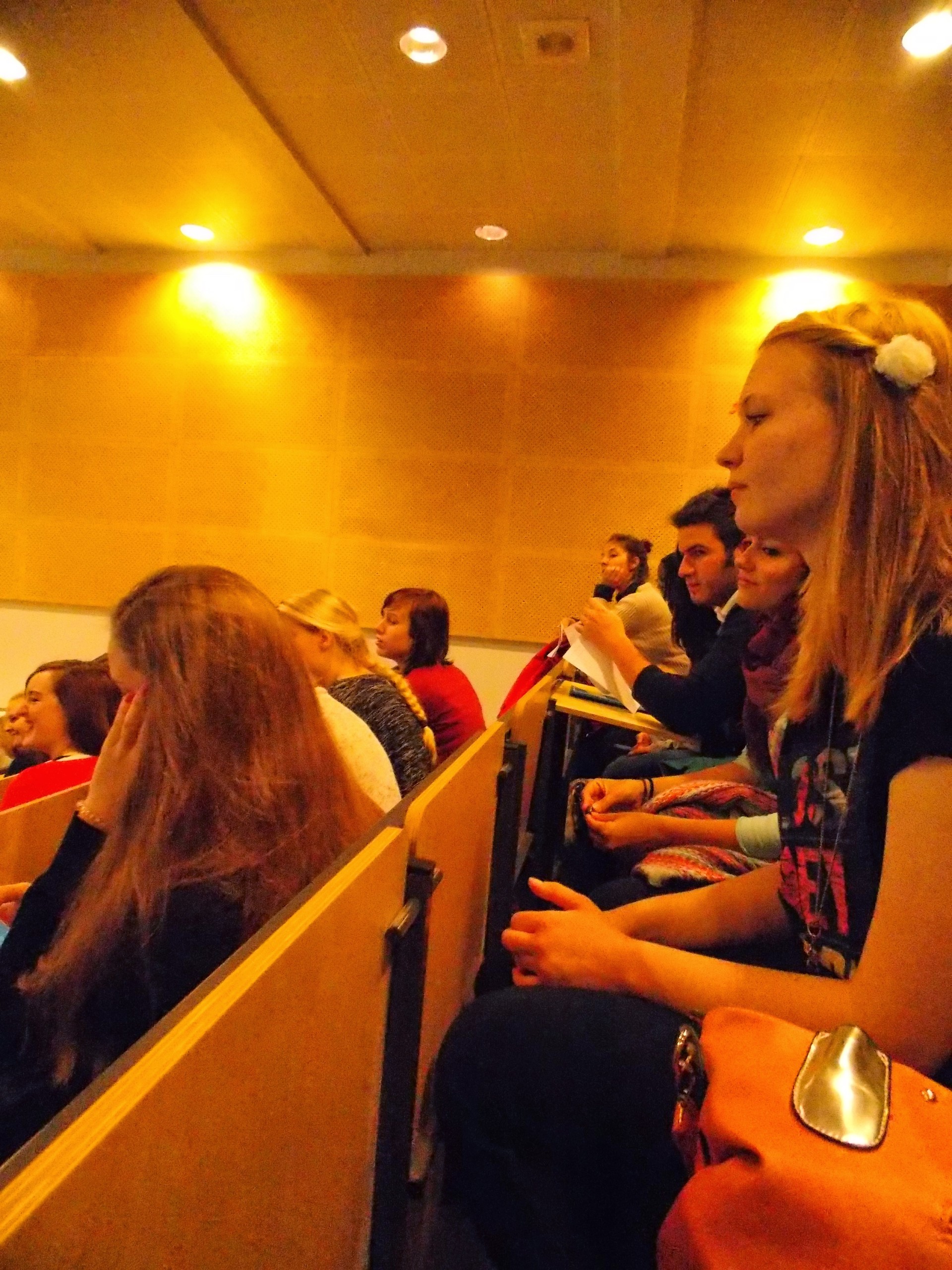
Every day we spent at least 5 hours at the university, divided into groups, in which each group member originated from different countries and studied different health sciences. Besides, each group had a teacher as a mentor, keeping everything under control. Teachers were the leaders of our daily schedules, but that doesn’t mean that they remained distant and severe, just the opposite, they were just like students, but a little older and with more skills and experience than us. Strong bonds were built in the groups, some of my relations with my team members survived till these days too. As I’ve already mentioned in my first post, we were brought together because our interests, study backgrounds, similar personality characteristics and orientations. During the discussions and debates we’ve had, I learnt enormously much about how are people’s reactions and interactions, and I learnt how to work in an intercultural, interdisciplinary and international group. We’ve talked about a lot of interesting facts and topics, like eating disorders, abuses, bullying, addictions, psychology, interiorization, latest trends and many other aspects about teenagers. The next important issue in these two week short-term Erasmus programme was brainstorming about modalities of informing and prevention. About solving the problems among adolescents with risk behavior. About how health-care professionals can get involved in this sphere, and which are their responsibilities, tasks, strengths and so on.
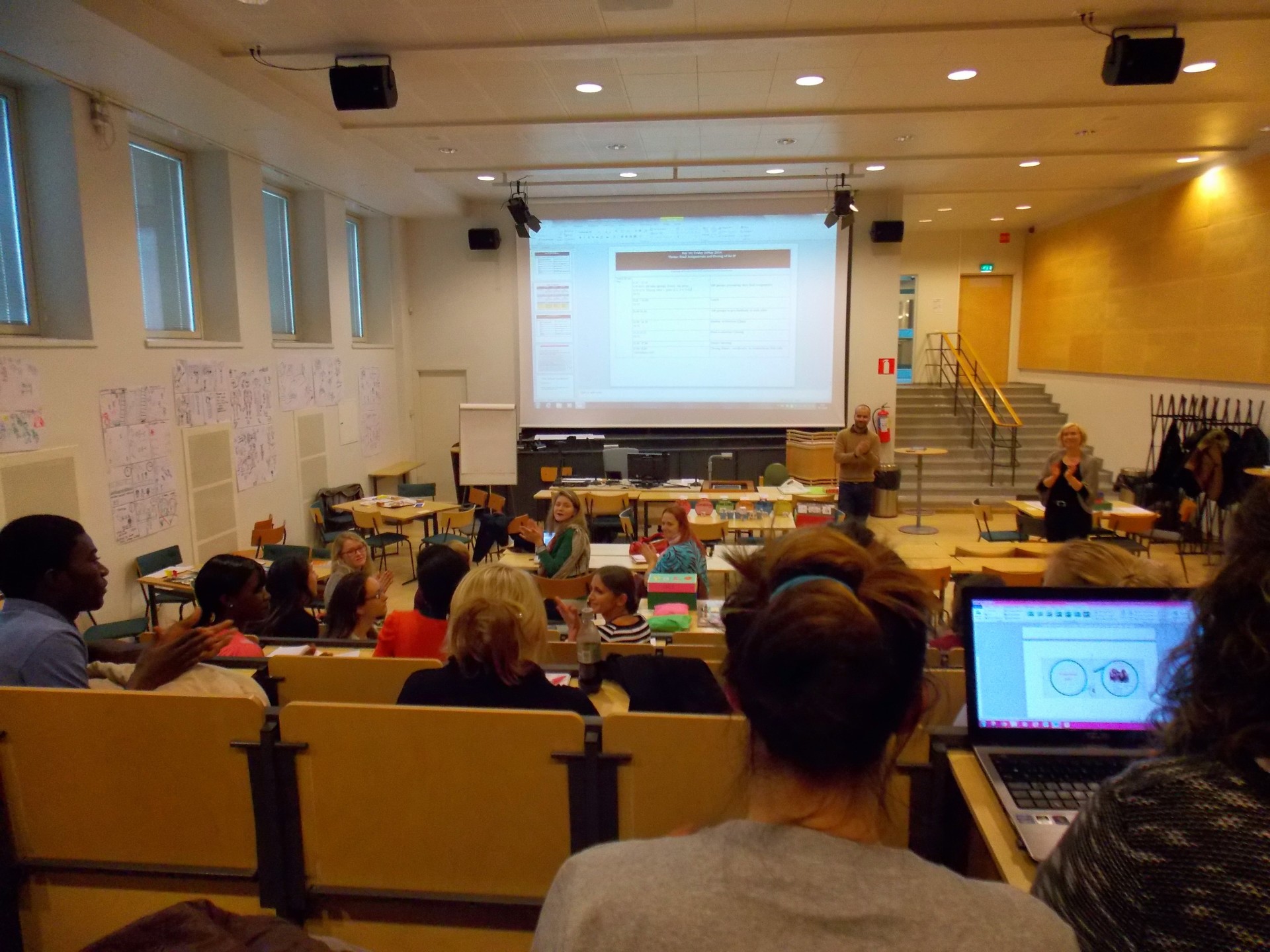
Our days were full of colorful work, from making interviews with people from the street about their opinion about youngsters and risk behavior to going on study-trips to different institutions, like: eating disorder centres, youth work places, centres for vulnerable and bullied teenagers, etc. We created preventive posters, presentations, and most importantly, our final assignment project in group: a preventive and informative board-game.
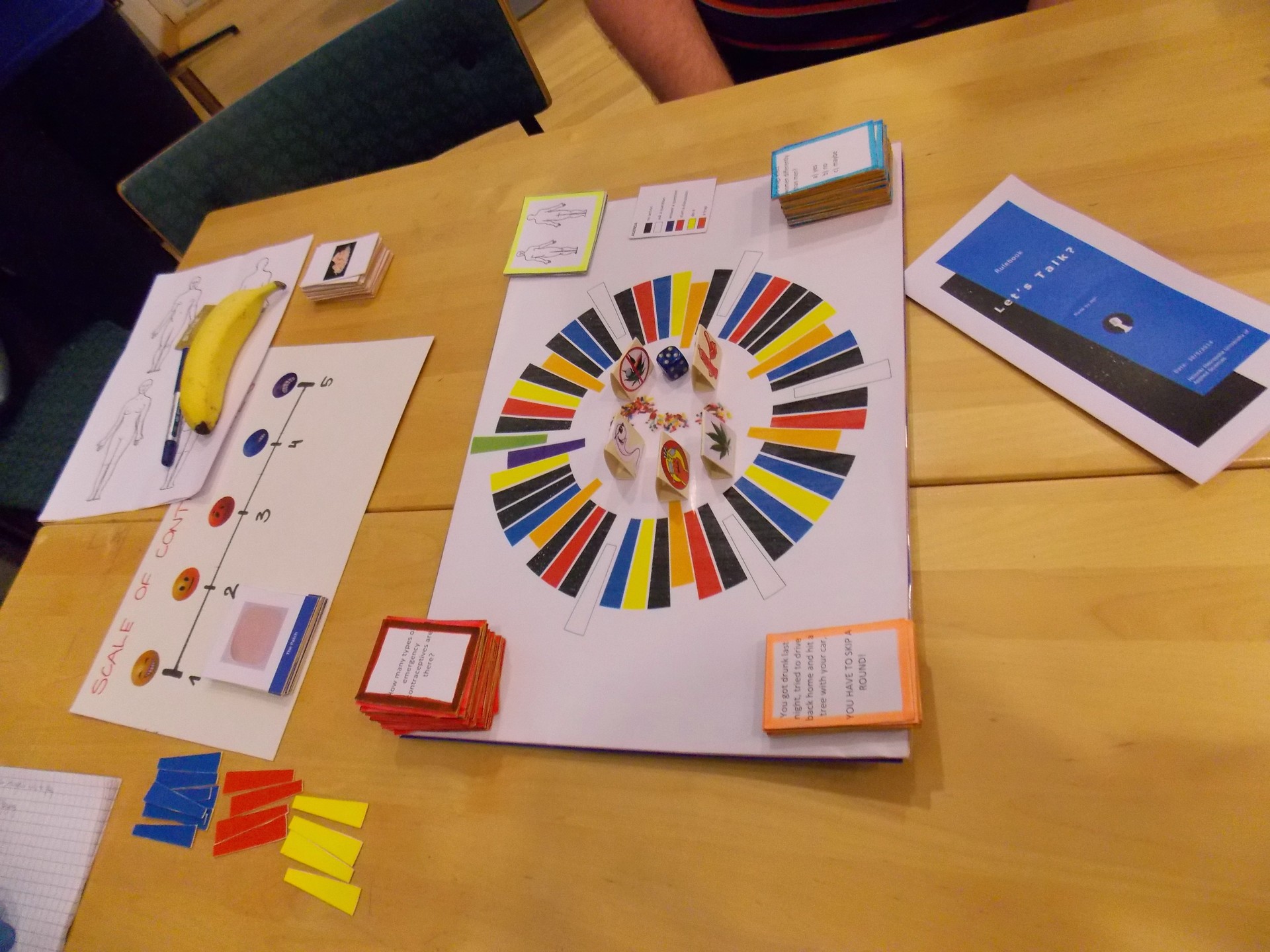
My team won the competition, so our board game received the most appreciations from the judges. Its name was Brain ‘n Action. It was a long way until holding the result in our hands, from guessing the perfect name, purpose, rules, and design for our game, but it built a stronger community between the members, and we mastered new skills and took responsibility. The purpose of the game was of course collecting points, it was competition-like. It could be played by groups of teenagers or by single players as well. There were 5 main stations: smoking, drinking, sexual life, free time and health. Every station contained several quiz-questions (informative theoretical part), and practical tasks (to put the knowledge in practice) about these topics. Those who gave the most correct answers became the winners. Our game was very exciting, dynamic and useful. In the end we offered it for Boy’s House Helsinki, which is a place we visited in our study trip, and met there many teenagers and also older boys with behavioral problems.
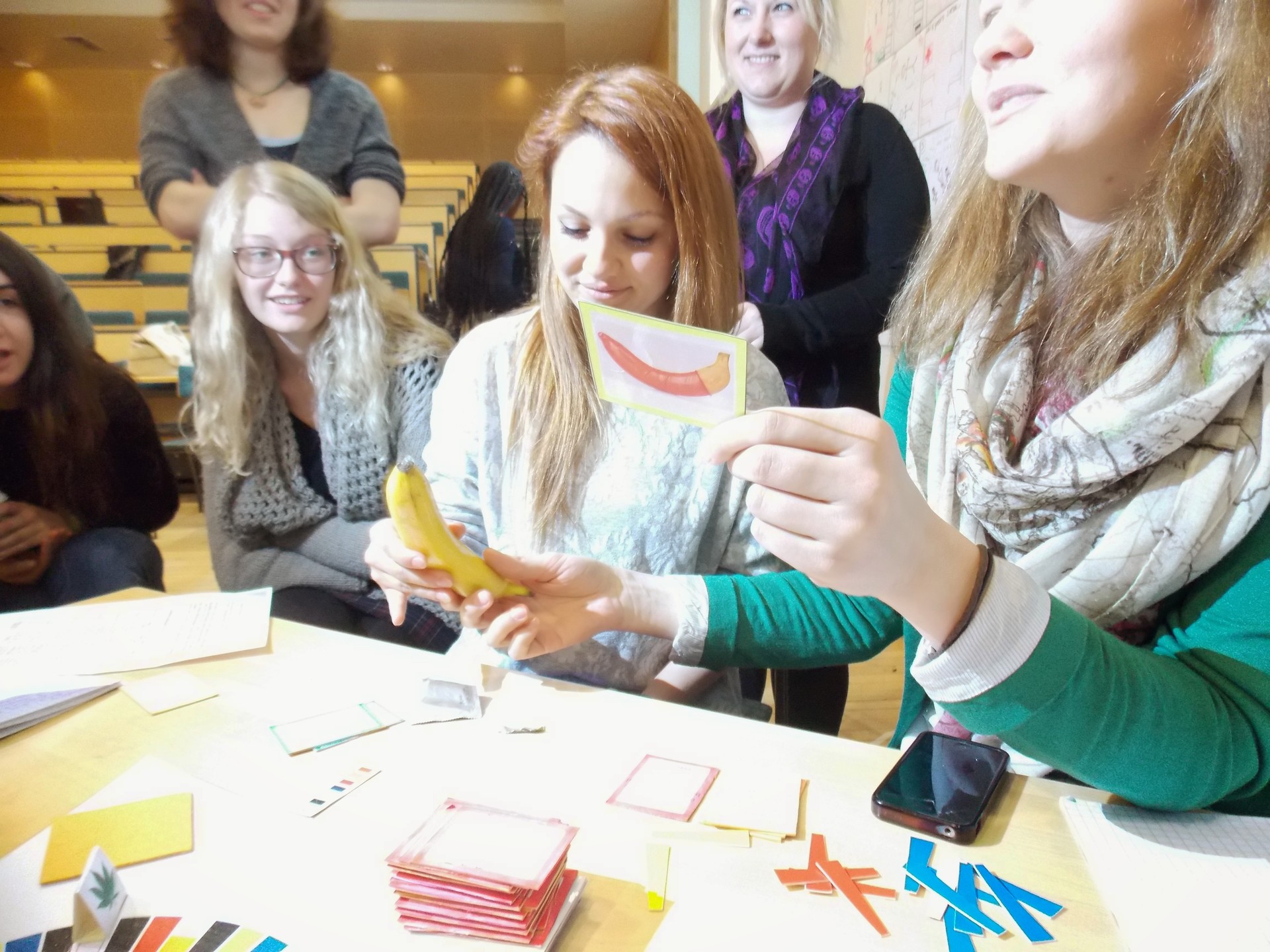
Other teams’ board games were also very good quality, interactive, attention-raising, pragmatic and complex. Most of them discussed about various topics, like segregation, interiorization, eating disorders, physical and mental disorders, family life, pregnancy among teenagers... I would recommend this ICHCI programme to every parent and child in the world!
Every group could offer as a gift its board game to foundations or activists, which created a very beautiful and memorable end for the programme. I hope that our board games were useful, informative and entertaining for every player. So, in general this was how work at Metropolia looked like.
My next post will be about entertainment, food, culture and fun in Helsinki.
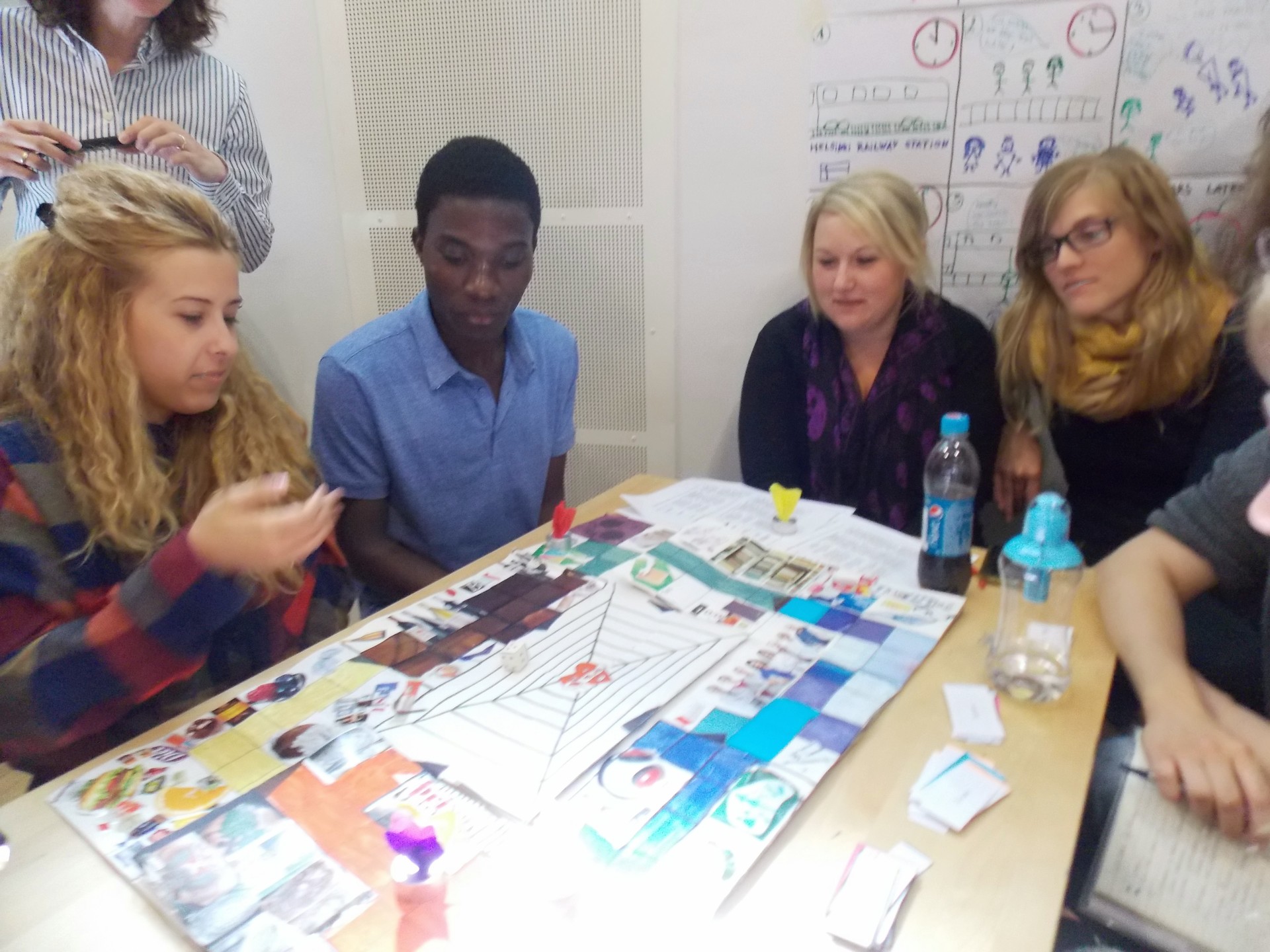
P. S. Sorry for the quality of the pictures, I’m not a professional photographer.
Thanks for reading. Dóra.
Photo gallery
Content available in other languages
Want to have your own Erasmus blog?
If you are experiencing living abroad, you're an avid traveller or want to promote the city where you live... create your own blog and share your adventures!
I want to create my Erasmus blog! →






















Comments (0 comments)